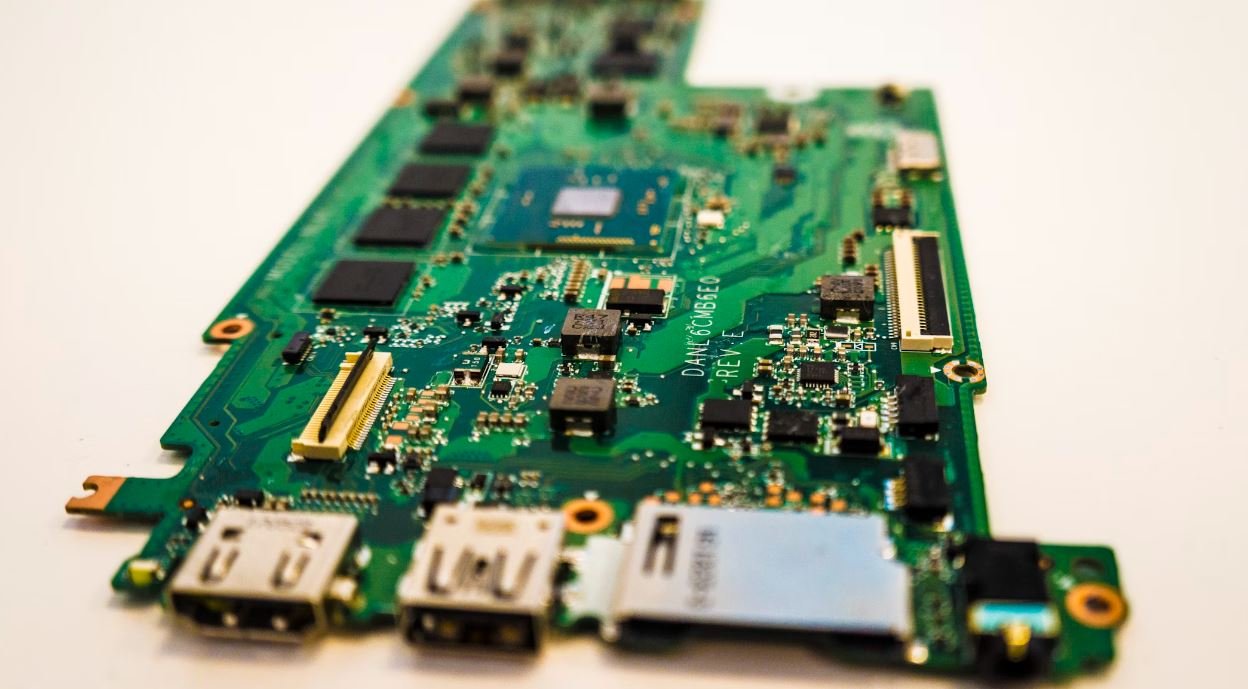AI Market in India
The market for artificial intelligence (AI) in India has been growing rapidly in recent years. AI has become increasingly important across a wide range of industries and sectors, from healthcare and finance to e-commerce and manufacturing. Companies in India are embracing AI technologies to gain a competitive edge and improve productivity. In this article, we will explore the current state of the AI market in India, key trends and developments, and the future outlook for this rapidly evolving industry.
Key Takeaways
- The AI market in India is experiencing significant growth, driven by factors such as increased adoption of AI technologies, government initiatives, and investments from both local and international players.
- AI is being used in diverse industries in India, including healthcare, finance, e-commerce, and manufacturing, to enhance decision-making, automate processes, and improve customer experience.
- The Indian government is actively promoting AI adoption through initiatives like the National AI Strategy and the AI Task Force, which aim to develop a robust AI ecosystem and facilitate innovation in the country.
- The AI market in India is expected to continue growing at a rapid pace, driven by advancements in technology, increasing investments, and a supportive regulatory environment.
Current State of the AI Market in India
India is witnessing a surge in AI adoption across industries. **According to a report by NASSCOM**, the AI market in India is expected to reach $4.5 billion by 2025, growing at a CAGR of 33.5% from 2019 to 2025. **Several factors are driving this growth**, including the increased availability of data, advancements in machine learning algorithms, and the rising demand for automation and predictive analytics.
*The Indian healthcare sector is leveraging AI to improve diagnosis accuracy and enhance patient care. By analyzing large amounts of medical data, AI can identify patterns and make predictions, enabling early detection of diseases and personalized treatment plans.*
*In the finance industry, AI is being used for fraud detection, risk assessment, and algorithmic trading. Banks and financial institutions are leveraging AI-powered chatbots and virtual assistants to provide personalized customer service and improve operational efficiency.*
Government Initiatives and Investments
The Indian government recognizes the potential of AI in driving economic growth and has taken several initiatives to foster AI development in the country. The National AI Strategy aims to establish India as a global AI leader by focusing on research and development, adoption of AI in key sectors, and skill development.
**The AI Task Force**, established by the Ministry of Commerce and Industry, is responsible for creating a roadmap for AI development and addressing policy and regulatory challenges. The government has also launched the AI for All program to train professionals and students in AI-related skills.
*India has seen increased investments in the AI sector, both from domestic and international players. In 2020 alone, Indian AI startups raised more than $110 million in funding, highlighting the growing investor interest in this space.*
The Future of AI in India
The future of the AI market in India looks promising, with several factors contributing to its growth. Advancements in technologies such as machine learning, natural language processing, and computer vision will further accelerate AI adoption across industries.
**According to a research report by MarketsandMarkets**, the Indian AI market is projected to grow at a CAGR of 46.2% from 2020 to 2025, reaching $22.2 billion by the end of the forecast period. This growth can be attributed to factors such as increased data availability, rising smartphone penetration, and the growing need for automation and intelligent decision-making.
- AI startups and companies in India are expected to play a significant role in driving innovation and developing AI solutions tailored to the Indian market.
- The development of AI research and development centers and the availability of skilled AI professionals will further contribute to the growth of the AI ecosystem in India.
- Government support and favorable policies will continue to play a crucial role in shaping the future of the AI market in India.
Table 1: AI Market Size in India
| Year | Market Size (in billion USD) |
|---|---|
| 2019 | 2.6 |
| 2020 | 3.2 |
| 2021 | 4.0 |
| 2022 | 4.8 |
Table 2: Industry Applications of AI in India
| Industry | AI Applications |
|---|---|
| Healthcare | Disease diagnosis, personalized treatment plans |
| Finance | Fraud detection, risk assessment, chatbots |
| E-commerce | Product recommendations, virtual shopping assistants |
| Manufacturing | Quality control, predictive maintenance |
Table 3: Top AI Startups in India
| Company | Area of Expertise |
|---|---|
| Wobot Intelligence | Computer vision, video analytics |
| Niki.ai | AI-powered chatbots, virtual assistants |
| Embibe | AI-powered education platform |

Common Misconceptions
Misconception 1: AI market in India is limited to tech giants
Many people believe that only tech giants like Tata Consultancy Services and Infosys dominate the AI market in India. However, this is far from the truth. There are numerous startups and smaller companies that are actively involved in AI development and innovation.
- Several startups in India are making significant contributions to AI, such as SigTuple and Mad Street Den.
- Smaller companies are adopting AI to enhance their business operations and improve customer experience.
- The AI market in India is diverse and inclusive, with room for companies of all sizes to thrive.
Misconception 2: AI will lead to job losses
There is a common misconception that AI will result in mass unemployment as machines and automation take over human jobs. However, this belief does not consider the potential for AI to create new job opportunities and transform the nature of work.
- AI technology can automate repetitive and mundane tasks, allowing humans to focus on more complex and creative work.
- New job roles, such as AI trainers and ethical AI specialists, will emerge to support the development and implementation of AI systems.
- AI will augment human capabilities, leading to collaborative work environments and increased productivity.
Misconception 3: AI is only applicable in the tech industry
While AI has gained significant traction in the tech industry, its applications are not limited to this sector alone. AI has the potential to transform various industries and sectors, including healthcare, finance, agriculture, and transportation.
- In healthcare, AI can assist in diagnosing diseases, analyzing medical images, and developing personalized treatment plans.
- In finance, AI algorithms can aid in risk assessment, fraud detection, and predictive analytics.
- In agriculture, AI-powered solutions can optimize crop yield, detect pests and diseases, and improve supply chain management.
Misconception 4: AI is inaccessible to non-tech-savvy individuals
There is a misconception that AI is an esoteric field reserved for computer scientists and technologically advanced individuals. However, AI tools and platforms are becoming increasingly user-friendly, making it accessible to individuals with varying technical backgrounds.
- AI platforms like Google’s TensorFlow and Microsoft’s Azure offer intuitive interfaces for developing and deploying AI models without extensive coding knowledge.
- Online courses and tutorials are available to help individuals learn and understand AI concepts.
- Collaborative efforts between AI developers and domain experts enable the creation of AI-powered solutions that cater to specific industries and user needs.
Misconception 5: AI will replace human intelligence
One of the most pervasive misconceptions about AI is that it will surpass human intelligence and render human thinking obsolete. However, AI is designed as a tool to augment and enhance human intelligence, not to replace it.
- AI algorithms learn from human data and expertise, making them valuable tools for decision-making and problem-solving.
- Human judgment, intuition, and creativity are crucial in guiding the development and application of AI systems.
- AI and human intelligence have complementary strengths that, when combined, can lead to greater innovation and advancement.

The Growth of AI Startups in India
The table below showcases the significant growth of AI startups in India. With the increasing focus on digital transformation and technological advancements, the AI market has witnessed a remarkable rise in recent years.
| Year | Number of AI Startups |
|---|---|
| 2015 | 42 |
| 2016 | 75 |
| 2017 | 120 |
| 2018 | 185 |
| 2019 | 250 |
Investment in AI Research and Development
The table below exhibits the investment in AI research and development (R&D) in India. As AI continues to gain prominence, organizations and research institutions are devoting significant resources to drive innovation in this domain.
| Year | Investment in AI R&D (in million USD) |
|---|---|
| 2015 | 10 |
| 2016 | 20 |
| 2017 | 35 |
| 2018 | 60 |
| 2019 | 95 |
Awareness and Adoption of AI in Various Sectors
The following table highlights the awareness and adoption of AI in different sectors in India. It demonstrates how industries are recognizing the potential of AI to drive innovation, enhance productivity, and improve customer experiences.
| Sector | Percentage of Awareness | Percentage of Adoption |
|---|---|---|
| Finance | 85 | 45 |
| Healthcare | 75 | 35 |
| Retail | 70 | 30 |
| Manufacturing | 60 | 25 |
Job Opportunities in the AI Sector
The table below depicts the job opportunities created by the flourishing AI sector in India. As businesses incorporate AI into their operations, the demand for skilled professionals in the field has surged.
| Year | Number of AI Job Openings |
|---|---|
| 2015 | 1,000 |
| 2016 | 2,500 |
| 2017 | 5,000 |
| 2018 | 10,000 |
| 2019 | 15,000 |
AI Investments by Venture Capital Firms
The table below showcases the investments made by venture capital firms in AI companies in India. These investments not only provide financial support but also foster growth and innovation within the AI ecosystem.
| Venture Capital Firm | Amount Invested (in million USD) |
|---|---|
| Firm A | 50 |
| Firm B | 75 |
| Firm C | 100 |
| Firm D | 125 |
AI Applications in Customer Support
The following table presents various AI applications employed in the customer support sector. These applications aid in delivering personalized experiences and efficient issue resolution for customers.
| AI Application | Benefits |
|---|---|
| Chatbots | 24/7 support, quick response times |
| Natural Language Processing | Understanding and analyzing customer queries |
| Speech Recognition | Efficient call routing and voice-based assistance |
AI Adoption by Government Agencies
The table below highlights the adoption of AI technologies by government agencies in India. The government recognizes the potential of AI in driving socio-economic growth and is actively leveraging it for various applications.
| Government Agency | AI Adoption |
|---|---|
| Agriculture Department | Optimizing crop yield and disease detection |
| Transportation Department | Smart traffic management and autonomous vehicles |
| Education Department | Personalized learning and AI-assisted teaching |
Challenges and Barriers for AI Adoption
The table below presents some of the key challenges and barriers hindering the widespread adoption of AI in India. Addressing these challenges is crucial to realize the full potential of AI across various sectors.
| Challenge | Description |
|---|---|
| Lack of Skilled Workforce | Shortage of professionals with AI expertise |
| Data Privacy and Security | Concerns regarding data protection and breaches |
| Ethical Considerations | Ensuring responsible and unbiased AI systems |
Conclusion
The AI market in India has experienced remarkable growth in recent years, as exhibited by the increasing number of AI startups, investments in R&D, and job opportunities. Industries such as finance, healthcare, retail, and manufacturing are actively incorporating AI technology to enhance their operations. The government, venture capital firms, and even customer support sectors are also embracing AI to drive innovation and improve customer experiences. However, challenges related to workforce availability, data privacy, and ethical considerations must be addressed to foster the widespread adoption of AI in India. With continuous advancements and concerted efforts, the AI market in India is poised for further growth and transformation.
Frequently Asked Questions
What is the current state of the AI market in India?
India has witnessed significant growth in the AI market in recent years. With the presence of numerous startups, technological advancements, and increasing investments, the AI market in India is expanding rapidly. As more industries recognize the potential of AI, its adoption is expected to increase further.
How is AI being used in different sectors in India?
AI is being utilized across various sectors in India, including healthcare, finance, manufacturing, retail, agriculture, and transportation. In healthcare, AI is helping in disease detection, drug discovery, and personalized treatment. In finance, AI is aiding in fraud detection, risk assessment, and customer service. Similarly, AI is transforming operations in other sectors through automation, data analysis, and predictive modeling.
What are the major challenges faced by the AI market in India?
Some key challenges faced by the AI market in India include a lack of skilled professionals, data privacy concerns, regulatory issues, and high infrastructure costs. Addressing these challenges is crucial to ensure the sustainable growth of the AI market and its smooth integration into various industries.
Who are the major players in the AI market in India?
Several major players in the AI market in India include large technology companies like Tata Consultancy Services (TCS), Infosys, Wipro, and HCL Technologies. Additionally, there are several AI startups and research institutions that are contributing to the growth of the AI ecosystem in the country.
What governmental initiatives are promoting the AI market in India?
The Indian government has launched several initiatives to promote the AI market in India. The National AI Strategy aims to accelerate AI adoption and development. Additionally, the government has set up task forces, funds, and innovation centers to support the growth of AI startups and research in the country.
What are some successful AI use cases in India?
There are several successful AI use cases in India. For example, in agriculture, AI is being used for crop yield estimation and pest detection. In healthcare, AI is helping in early disease diagnosis and treatment recommendation. AI is also being deployed for personalized marketing, recommendation systems, and fraud detection in e-commerce and banking sectors.
What is the expected future growth of the AI market in India?
The AI market in India is expected to grow at a significant rate in the coming years. With continued advancements in technology, increased investments, and a growing demand for AI-driven solutions, the market is projected to reach new heights. However, the future growth depends on factors like skill development, regulatory frameworks, and infrastructure development.
How can businesses benefit from adopting AI in India?
Businesses adopting AI in India can benefit in several ways. AI can automate repetitive tasks, improve operational efficiency, enhance decision-making, and enable personalization of products and services. Additionally, AI can help businesses gain insights from large datasets, identify trends, identify fraud, and improve customer experience.
Are there any ethical concerns associated with AI adoption in India?
Yes, there are ethical concerns associated with AI adoption in India. Some concerns include job displacements, bias in AI algorithms, data privacy, and potential misuse of AI technology. It is important for businesses and policymakers to address these concerns to ensure responsible and ethical AI deployment.
What are the future trends in the AI market in India?
Some future trends in the AI market in India include the integration of AI with other emerging technologies like Internet of Things (IoT) and blockchain, the use of AI in edge computing, and the development of AI-powered virtual assistants for various applications. Additionally, the application of AI in areas like education, governance, and cybersecurity is expected to gain traction.




